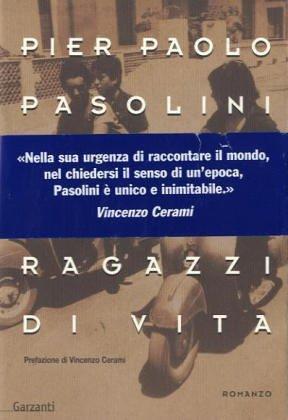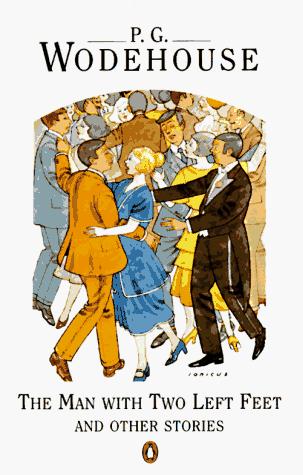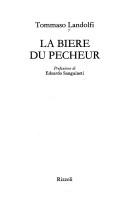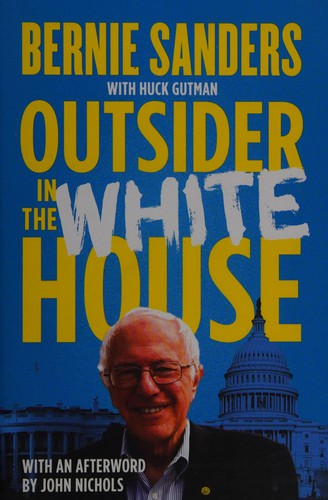Noioso... non l'ho finito, non riuscivo a procedere a una velocità decente.
Recensioni e commenti
Questo collegamento si apre in una finestra pop-up
nemobis ha recensito Ragazzi di vita di Pasolini P. Paolo
nemobis ha recensito Il Piacere di Gabriele D'Annunzio
Review of 'Isagoge' on 'Goodreads'
2 stelle
Sostanzialmente una serie di definizioni. Probabilmente è inevitabile che sia interessante solo per gli specialisti.
nemobis ha recensito Preferirei di no di Giorgio Boatti (Struzzi -- 527)
Review of 'Preferirei di no' on 'Goodreads'
L'argomento è interessante, i dodici straordinari; ma da quel poco che ho letto il libro mi sembra troppo agiografico e poco storico (del resto Boatti è un giornalista), insomma non molto profondo, una semplice somma di biografie. Non ho tempo per finirlo, e non credo che lo riprenderò in prestito.
nemobis ha valutato Pierre et Gilles. Sailors & Sea: 4 stelle
nemobis ha valutato Needful Things: 4 stelle
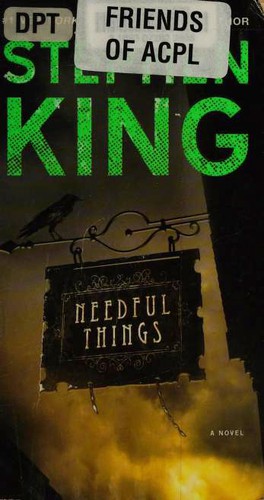
Needful Things di Stephen King
“There are two prices for this. Half…and half. One half is cash. The other is a deed. Do you understand?” …
nemobis ha recensito Every day is extra di John Kerry
"John Kerry tells the story of his extraordinary life of public service, from decorated Vietnam …
Review of 'Every day is extra' on 'Goodreads'
2 stelle
Back in 2004 I had great hopes for John Kerry, and his digital campaign was very innovative, so I was interested in seeing his take on the classic genre, "memoir to re-write history and raise the profile of one's late career". The book is well written, no doubt, but it remains a bit hard to reconcile the anti-Vietnam war beginnings with everything happened afterwards.
It was nevertheless very interesting to learn about a number of episodes in decades of behind the scenes. There are a few remarkable admissions.
nemobis ha valutato The man with two left feet and other stories: 2 stelle
nemobis ha recensito A writer's diary di Virginia Woolf (Triad/Granada paperbacks)
Review of "A writer's diary" on 'Goodreads'
Non ho mai deciso che cosa pensare di questo libro. È Virginia, però vista attraverso la lente del marito. Non so quanto aggiunga veramente ai diari pubblicati in seguito.
nemobis ha recensito La bière du pecheur di Tommaso Landolfi (Scala)
Review of 'La bière du pecheur' on 'Goodreads'
Un romanzo sull'impossibilità per il narratore di scrivere un romanzo, per questioni stilistiche e narrative che emergono dalla storia e da tutti gli "inserti meta-narrativi" (mi invento il nome tecnico, vabbè, insomma qualcosa meta-qualcos'altro). Intelligente e divertente, ma leggendolo ho avuto la forte impressione che tale tecnica fosse già superata cinquant'anni fa, insomma non stupisce piú nessuno, e resta senza scopo una certa pesantezza linguistica che quindi non appaga molto. Comunque val la pena di leggerlo, anche perché è corto. Qualche citazione qui: it.wikiquote.org/wiki/Tommaso_Landolfi#La_biere_du_pecheur
nemobis ha recensito Gambling with Armageddon di Martin J. Sherwin
Review of 'Gambling with Armageddon' on 'Goodreads'
5 stelle
The real story behind the fiction of an orderly deployment of nuclear weapons, which is simply madness. We conveniently deceive ourselves into thinking that nuclear policy is no longer a threat to humanity, and can be separated from other evils like climate change, or that other issues should take priority. But how can we be so convinced that we'll make the best decisions about the nukes of today, when we've still not learnt our lessons from 1962?
«The real lesson of the Cuban missile crisis–the lesson that is consistently resisted because it marginalizes the value of nuclear weapons–is that nuclear armaments create ht eperils they are deployed to prevent, but are of little use in resolving them.»
nemobis ha recensito The open society and its enemies di Karl Popper
Review of 'The open society and its enemies' on 'Goodreads'
4 stelle
In this second volume, Popper puts to good use the concepts he developed in the first. I was a bit disappointed because we never get to learn a definition of this "open society", nor how to get there, but maybe that's the point. There is no single answer: Popper only shows us a method, which we need to learn by using it.
I've never had the patience to read Marx or Hegel in the original, and honestly I'm not sure one should, but I'm convinced Popper's analysis is one of the sharpest (at least for an empiricist point of view): it's brutal but also fair.
Every other page contains some insight that you may agree or disagree with, but remains useful food for thought for issues we're still facing some 80 years later, like the problem of NATO or climate change. Some of the concepts I've come to appreciate and …
In this second volume, Popper puts to good use the concepts he developed in the first. I was a bit disappointed because we never get to learn a definition of this "open society", nor how to get there, but maybe that's the point. There is no single answer: Popper only shows us a method, which we need to learn by using it.
I've never had the patience to read Marx or Hegel in the original, and honestly I'm not sure one should, but I'm convinced Popper's analysis is one of the sharpest (at least for an empiricist point of view): it's brutal but also fair.
Every other page contains some insight that you may agree or disagree with, but remains useful food for thought for issues we're still facing some 80 years later, like the problem of NATO or climate change. Some of the concepts I've come to appreciate and use in daily reflection are: the "mysticism" of any theory which proclaims a golden age to be either in the past or in the future; the untenable "psychological reductionism" which simplifies sociological constructs to the point of making them impossible to understand and govern.
A passage from chapter 23: «To sum up these considerations, it may be said that what we call "scientific objectivity" is not a product of the individual scientist's impartiality, but a product of the social or public character of the scientific method; and the individual scientist's impartiality is, so far as it exists, not the source but rather the result of this socially or institutionally organized objectivity of science».
nemobis ha recensito Outsider in the White House di Bernard Sanders
Review of 'Outsider in the White House' on 'Goodreads'
2 stelle
Nothing new here unless you've been living under a rock since 2015, but it's an interesting piece of political communications and a very easy read. It's not all fluff: we get to learn interesting details about a number of concrete policy issues you rarely hear about, like energy saving, from the point of view of what has already happened in legislation rather than vacuous promises.
nemobis ha recensito A colpi d'ascia. Un'irritazione

A colpi d'ascia. Un'irritazione
Review of "A colpi d'ascia. Un'irritazione" on 'Goodreads'
4 stelle
Le relazioni personali e romantiche e un mondo della cultura che dalle relazioni molto dipende.


